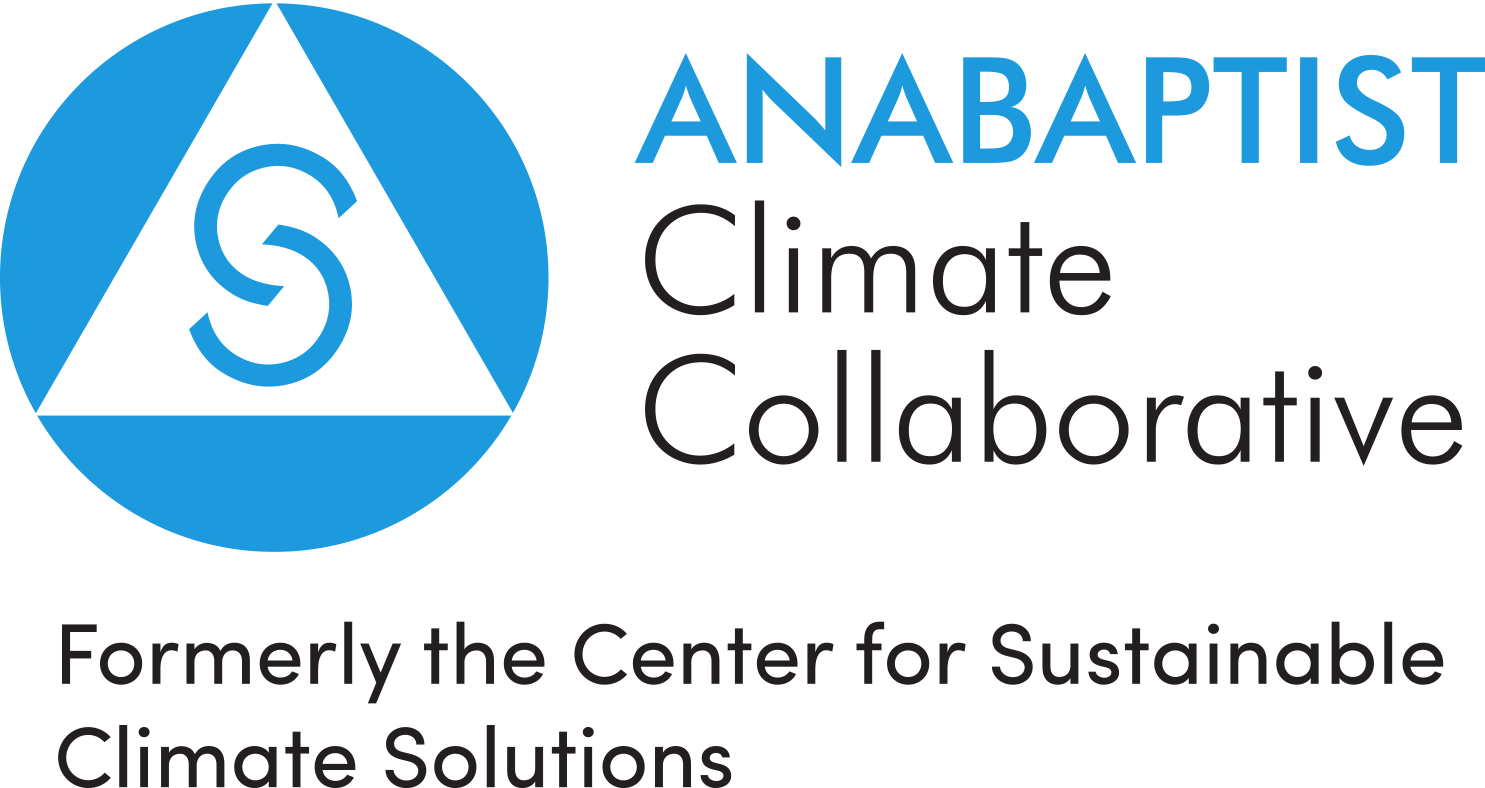One might not expect sustainability to rank very high on a convention center’s priority list, but the Kansas City Convention Center prides itself in exceeding expectations.
With a plethora of multi-sized spaces for meetings, presentations and large scale events, it comes as no surprise that Mennonite Church USA (MCUSA) chose to have their biennial convention in the space. This year’s convention saw more than 3,000 youth and adults in attendance during the first week of July, so the need was great for ample space. Of course, with all of the action there were plenty of opportunities for sustainable practices to come into play.
One of the first hints of sustainability came rolling in on the seemingly endless line of buffet-style tables taking residence in Hall A: disposable tableware. Now, most of the time utensils and food serving receptacles tend to serve a quick and clean purpose. They need to be just as easy to produce as they are to clean up, with the ultimate goal being ease for both the consumer and the clean up crew. But alas, this often is accomplished with single use plastic ware which accounts for an oh so ugly addition to the local dump.
This was where the KC Convention Center stepped up in a surprising way. All of the plates, napkins and cutlery were not only made from recycled materials, but they were compostable too!
They seemed to be fairly effective, holding sturdy through every action that eating requires without snapping or splintering like alternative cutlery has a reputation to do. It also helped to ease the minds of those worried about what kind of carbon footprint the convention’s attendees were making by being there.
Besides this, as well as a number of well placed recycling bins and a policy for only keeping air conditioning on for 12 hours a day, the real crown jewel of the convention center lies in its architecture.
At over 46,000 square feet with the capacity to accommodate around 4,000 people, the Grand Ballroom is one of the most eco-friendly entertainment spaces of its size in the nation. Although not rented by MCUSA for their convention, the space utilizes waterless plumbing, energy efficient heating and cooling and “one of the most sophisticated lighting systems in the world,” according to the convention center’s website detailing the space.
It’s the lighting system that earns the Grand Ballroom the coveted Leadership in Energy and Environmental Design (LEED) Silver certification. The certification is the third best ranking after Platinum and Gold and signifies that the space is reducing stress on the environment by using energy and resource-efficient elements and lower utility needs.
The way that the Grand Ballroom accomplishes this is through the automated controlling of a series of blinds and shutters that can be adjusted to let in as much natural light as possible. Even as the sun moves across the sky, the apparatus can move with it. This allows for the majority of the lighting to come from nature rather than having man-made lights running all day. No lights on equals lower energy usage!

The organizations participating in MCUSA’s convention also played a hefty role in promoting sustainability, especially the Center for Sustainable Climate Solutions (CSCS) and Mennonite Creation Care Network (MCCN). With booths located next to each other in the Exhibit Hall, both organizations displayed both resources for climate change information and interactive activities. The CSCS booth featured an opportunity to create a bracelet of colored beads following the change of climate in the artist’s homestate, as well as a display of iPads where people could pause to listen to the Shifting Climates podcast by the 2019 CSCS Fellows. The MCCN booth focused more on games to draw people into conversation, like building with blocks featuring pictures and quotes from MCCN network members. Both groups also contributed to a number of the convention’s seminars and discussion events.
All in all, the number of attempts toward mass sustainability was admirable, especially on such a large scale. It could be easy for a hospitality corporation to take the easiest route toward a profit, no matter what the cost on nature. As well, there are always more ways for companies and consumers to strive for minimal climate impact and they aren’t always practical from a business standpoint. However, it is a step in the right direction for the Kansas City Convention Center, and the people who support it, to start doing their part in climate action.
Leading by example is always the best way to set a new idea in motion.

People gather to make temperature bracelets at the CSCS booth at Convention. 
The fellows who produced the podcast Shifting Climates leading a seminar.
Article by Olivia Smucker
2019 Faith Outreach Intern

